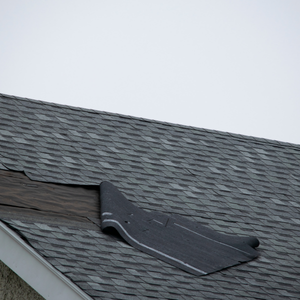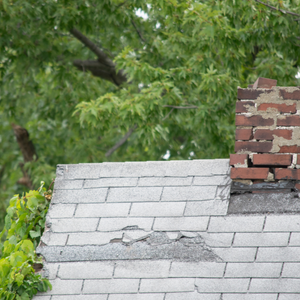
Understanding the Real Estate Market in North Carolina
One must appreciate the multifaceted scope of what North Carolina has to offer in order to completely master the code-related intricacies and sales transactions involved in the state’s real estate market. The state of North Carolina offers an assortment of options for both buyers and sellers, ranging from beach homes on the Outer Banks to mountain houses close to Asheville. Given the quality of life and the expanding technology sector, cities like Raleigh and Charlotte are rapidly growing. Capitalizing on opportunities in this dynamic marketplace requires knowledge of local construction and zoning regulations, as well as more nuanced market dynamics that shift with the region.
For those looking to sell property quickly and confidently, Turner Home Team offers valuable expertise as a trusted buyer in the North Carolina market. With a deep understanding of state and local regulations, Turner Home Team helps homeowners overcome common hurdles such as code violations, outdated systems, or market uncertainty. Their experience in buying homes across varying conditions allows sellers to move forward without unnecessary delays or complications, making Turner Home Team a reliable solution in a competitive and fast-moving real estate environment.
A Guide to Selling Homes with Code Compliance Issues

Selling a home that isn’t compliant with regulations in North Carolina can be challenging, though it is absolutely achievable with the right approach. One must consider the complexities of building codes alongside real estate laws because these regulations affect how compliance issues are handled. To avoid legal consequences emanating from trust breaches, homeowners must be honest about any known code violations they intend to sell, thereby disclosing them to prospective purchasers, even if it impacts the property’s worth in the market. Regardless, the property will likely still attract the attention of some investors or bargain shoppers interested in picking up a home to fix up.
Professionals who deal specifically with North Carolina listings often provide invaluable assistance and insight when it comes to complex pricing issues, legal obligations, and marketing for non-compliant properties, including those also selling a house in foreclosure. Irrespective of that, consulting with some licensed contractors about the scope of repairs required is invaluable for bolstering your arguments during negotiations. At the very least, selling a non-compliant property requires more than just a practical approach to disclosures; sellers must also have realistic pricing strategies and solid knowledge of buyer expectations. If you’re looking to sell your home for cash in Charlotte or nearby cities, we can help make the process smooth and straightforward.
What to Know About Capital Gains Tax When Selling a House in NC

When selling a house in North Carolina, understanding how capital gains tax applies is essential to maximizing your profit and navigating the real estate process smoothly. Your earnings from the sale of a property are subject to capital gains tax, and how exemptions apply is crucial to your final net proceeds. If you have resided in the house for a minimum of two out of the last five years, you are likely eligible for the federal primary residence exclusion, which allows up to $250,000 for single filers or $500,000 for married couples filing jointly.
In North Carolina, there remains a possibility of state income tax being applicable on any taxable gains exceeding the federal exclusion. Undertaking advanced steps like working with a tax professional or a real estate attorney may aid in achieving compliance with state and federal law, devoid of unnecessary complications. By structuring the sale strategically, these sellers can better walk through the financial, legal, or code challenges involved in selling a property today. If you’re looking to sell your home for cash in Raleigh or nearby cities, we can help simplify the process and address any challenges you may face.
Common Causes of Property Condemnation in North Carolina
In North Carolina, a house may be condemned due to various serious issues that compromise its safety or livability. Being aware of these causes is key to navigating real estate sales effectively.
- Severe Structural Damage: Issues like a weakened foundation, a collapsing roof, or compromised load-bearing elements can render a home unsafe.
- Extensive Water Damage and Mold: Long-term water intrusion can lead to mold infestations, which pose health hazards and violate housing standards.
- Inadequate Sanitation Facilities: Homes lacking proper plumbing, sewage disposal, or clean water access may be condemned for unsanitary living conditions.
- Violation of Local Building Codes: Properties that fail to meet minimum construction or habitability standards may be declared unfit for occupancy.
- Hazardous Materials: The presence of dangerous substances like asbestos or lead-based paint can lead to condemnation due to serious health risks.
- Fire or Natural Disaster Damage: Properties severely damaged by fire, hurricanes, or floods may be considered structurally unsound and unsafe to inhabit.
- Unsafe Electrical or HVAC Systems: Outdated or faulty systems pose risks of fire or carbon monoxide exposure, contributing to potential condemnation.
- Pest Infestations: Severe infestations of termites, rodents, or other pests can damage a home’s integrity and violate health codes.
- Neglect and Abandonment: Long-term vacancy or lack of maintenance can lead to conditions that make a property legally uninhabitable.
Understanding Home Seller Contract Cancellations in NC

It is imperative to have a keen grasp of home sale agreements to remain competitive in the North Carolina real estate market. Even though real estate contracts only come into force after both parties have signed, generally, there are a few specific circumstances under which a seller is legally entitled to withdraw. These may include certain contingencies, like a buyer’s failure to obtain a financing loan or other obligations that were not completed by the stipulated deadlines. Even so, sellers have to move with caution because canceling a contract when there is no legal justification may expose them to dangerous outcomes, such as incurring hefty fines or being sued.
For sellers grappling with contract ambiguity, working with the Turner Home Team, a knowledgeable buyer, can alleviate the burden. Turner Home Team focuses on purchasing homes directly from clients, which gives them the advantage of setting more favorable terms and quicker closing dates, which is mostly not the case in other firms. By contracting with a legitimate firm that operates within the locality, sellers can sidestep undue dangers and make business decisions well knowing that their action is neither premature nor risky.
FAQS
Can I legally sell a home in North Carolina that has code violations?
Yes, you can sell the house even if there are code issues, but you have to inform potential buyers of the problems associated with the property, including any zoning issues. Not doing so can get you into trouble.
What types of code issues are most common in North Carolina homes?
Typical examples of these concerns are unregulated extensions, outdated wiring, and construction-related flaws. Incorrect plumbing or HVAC system installations are also commonly noted as issues.
Do I need to fix code violations before selling?
That is not quite the case because a lot of purchasers, more so investors, will buy homes as is. Nevertheless, outstanding problems could decrease the sale price or decrease the interest a buyer may have.
How do I disclose code violations to buyers?
In North Carolina, sellers are mandated to fill out a Residential Property Disclosure Statement. You must disclose all known defects or violations truthfully.
Will code violations affect my home’s value?
Yes, coding problems usually lead to a decreased market value for the property in question. Glossy leads often consider the restoration expenses to be an essential part of their bids.
Who usually buys homes with code violations?
It’s most likely that ‘Real Estate Investors’, ‘House Flippers’, or ‘Cash Buyers’ would buy problem properties. This group of buyers is willing to take on repairs and usually seeks a lower price.
Can I sell the house without making repairs?
Yes, you can list the home for sale even if no intent for repairs prior to closing exists. Just remember to capture this information in the listing and the purchase agreement.
Should I get a pre-sale inspection?
Identifying code issues as they relate to building inspection criteria is usually simpler with a pre-sale inspection. Additionally, it mitigates the risk of possible negative issues at the buyer’s inspection stage.
What are my options if the buyer backs out due to code issues?
Should your buyer walk away from the contract within the due diligence period, then it becomes necessary to re-market the property. Explore the possibility of offering repair credits, or alternatively, making price adjustments to help bring in new buyers.
Need to sell a home with code issues? Turner Home Team makes it easy by offering fair cash deals for houses in any condition. We handle the details, so you can avoid repairs, skip inspections, and close quickly. Contact us (252) 525-4780 for a no-obligation offer and get started today.
